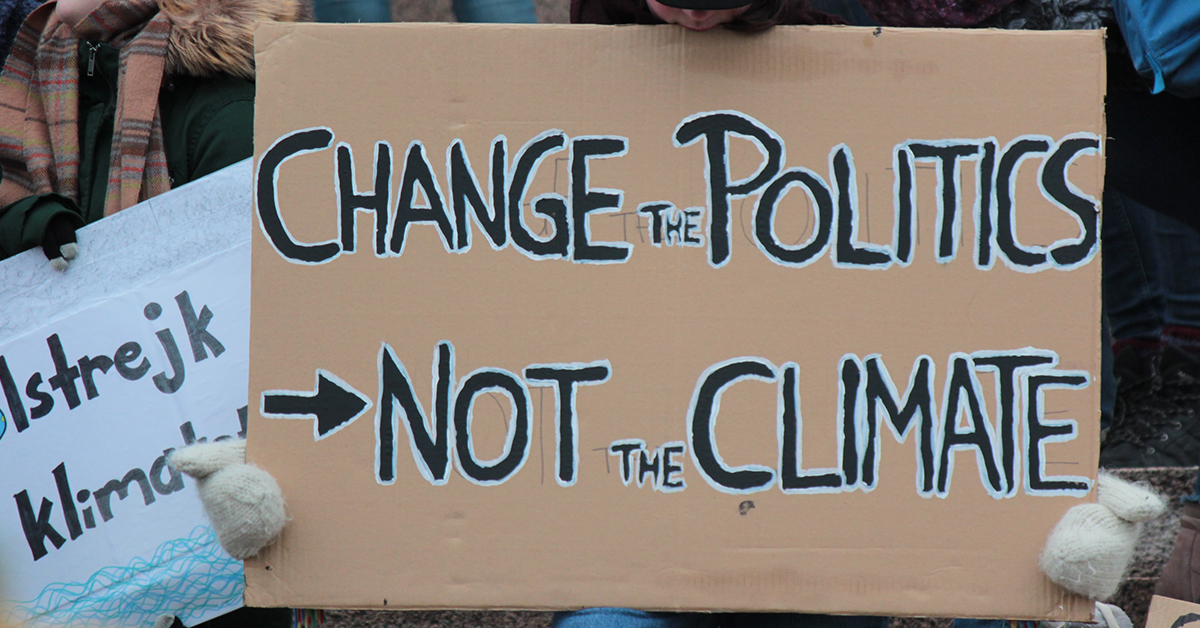
By Shashi Kant Yadav
Read Part One
Climate Change and Neo-functionalism
In the past decade, the EU’s supranational institutions have expanded their integrational approach eventually facilitating interest groups to mobilize beyond their state boundaries as an actor rather than a subject. To explain it more clearly, consider the Court of Justice of the European Union’s (CJEU’s) expansionist interpretation of the TFEU that enable climate change policy to become a part of the acquis, the formation of the “green coalition” by the directorate general of the EC, the interventionist approach of the EP post-2015 Lisbon treaty. Neo-functionalists argue that the supranational institution gained wide power over the environmental matters as the interest groups’ find their objectives more aligned to the EU level institutes and the member states impliedly, “punctured” their jurisdictions creating an effective space for policy spillovers. Under the neo-functionalism approach if individual and NGOs, as an independent actor, are allowed to challenge their member states’ decision or the EU approach on climate change at CJEU, this can mobilize the interest group beyond the territorial limits of the member states, effectively amplify the findings of the Urgenda case.
An analysis of Carvalho case under this background reveals the careful considerations taken by the petitioners while drafting their petitions from the neo-functionalism approach. The case was rejected by the general court determining that the petitioners have a “lack of standing” as per Article 263 (4) of TFEU. This approach of the general court was akin to a 2019 petition against the EU Renewable Energy Directive, in which the petitioners asserted that the directive will “pump more carbon” into the planet—the petition was again rejected due to lack of standing. However, the appeal to the general court’s order in the Carvalho case is currently pending and the appellants are focusing on the scientific arguments rather than taking a human rights-based approach. The appellants argue that the EC 2014 impact assessment report, based on which it has set in its GHG emission reduction, did not take into account a wide range of scientific evidence leading to faulty emission budgets. This argument can be sustained through the route of the Aarhus Convention (Decision 2005/370) as under the Aarhus convention NGOs may initiate an internal review of the administrative act. This provides an alternative legal route for the ones that lack standing as per Article 263 (4) and thus fostering the mobilisation of interest groups. Currently, the appellants are seeking the annulment of the general court’s “lack of standing” decision.
Emerging Trends
The appellants of the Urgenda case and Cavelho case have abstained from taking the right-based approach for pressing on the need for reducing GHG emissions. In the EU regime, a right to a “stable climate” as recognised by the US Julian Case, can potentially fall into the appellant’s right to life, health, equal treatment, the welfare of children, among others. Such mobilization of the individuals to CJEU, on the pretext of the violation of fundamental rights, may create a special space for climate change litigation—eventually shifting the interest groups at tectonic levels. In this scenario, there is no clear acceptance of stable climate right by the CoE, although the council recognises the nexus between environmental rights and climate change. The appellants of both the cases precluded themselves from invoking such a fundamental right as they had substantive supranational level agreements and legal instruments to invoke rather than loosely weaved in the fundamental right. The Urgenda and Cavelho approach is taken in the Italian Giudizo Universale case in which NGOs and citizen groups have started a “Universal Judgment Campaign” seeking Urgenda like results in Italy. Such litigations are opening new ways for integration dynamics, among the anti-climate change citizen groups and central European fuel-based economies like Hungary and Poland.
Shashikant Yadav is a water and energy policy researcher affiliated with the Central European University, Vienna. His article The Oil and Gas Sector in India: Balancing Business Policies and Public Interest by the Supreme Court of India is published in Volume 2, Issue 1 of Global Energy Law and Sustainability, Edinburgh University Press.
Global Energy Law and Sustainability is an international journal dedicated to research in energy law and policy, with an interdisciplinary focus comprising themes from a range of disciplines involved in energy research, such as: the energy life-cycle; energy production and infrastructure; energy regulation; economics and legal policy; energy justice; low-carbon energy law and transition; international energy law; subsidies; risk; governance; climate change; sustainability and environmental law. Find out how to subscribe, or recommend to your library.






